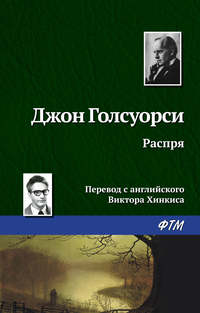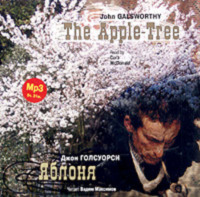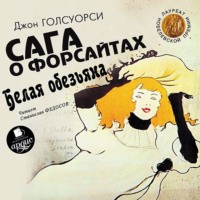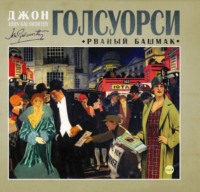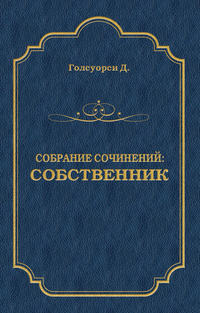 полная версия
полная версияPlays : Third Series
MORE. I must speak, Hubert.
HUBERT. No, no! Bottle yourself up for to-night. The next few hours 'll see it begin. [MORE turns from him] If you don't care whether you mess up your own career—don't tear Katherine in two!
MORE. You're not shirking your duty because of your wife.
HUBERT. Well! You're riding for a fall, and a godless mucker it'll be. This'll be no picnic. We shall get some nasty knocks out there. Wait and see the feeling here when we've had a force or two cut up in those mountains. It's awful country. Those fellows have got modern arms, and are jolly good fighters. Do drop it, Stephen!
MORE. Must risk something, sometimes, Hubert—even in my profession!
[As he speaks, KATHERINE comes in.]
HUBERT. But it's hopeless, my dear chap—absolutely.
[MORE turns to the window, HUBERT to his sister—then with a gesture towards MORE, as though to leave the matter to her, he goes out.]
KATHERINE. Stephen! Are you really going to speak? [He nods] I ask you not.
MORE. You know my feeling.
KATHERINE. But it's our own country. We can't stand apart from it. You won't stop anything—only make people hate you. I can't bear that.
MORE. I tell you, Kit, some one must raise a voice. Two or three reverses—certain to come—and the whole country will go wild. And one more little nation will cease to live.
KATHERINE. If you believe in your country, you must believe that the more land and power she has, the better for the world.
MORE. Is that your faith?
KATHERINE. Yes.
MORE. I respect it; I even understand it; but—I can't hold it.
KATHERINE. But, Stephen, your speech will be a rallying cry to all the cranks, and every one who has a spite against the country. They'll make you their figurehead. [MORE smiles] They will. Your chance of the Cabinet will go—you may even have to resign your seat.
MORE. Dogs will bark. These things soon blow over.
KATHERINE. No, no! If you once begin a thing, you always go on; and what earthly good?
MORE. History won't say: "And this they did without a single protest from their public men!"
KATHERINE. There are plenty who–
MORE. Poets?
KATHERINE. Do you remember that day on our honeymoon, going up Ben Lawers? You were lying on your face in the heather; you said it was like kissing a loved woman. There was a lark singing—you said that was the voice of one's worship. The hills were very blue; that's why we had blue here, because it was the best dress of our country. You do love her.
MORE. Love her!
KATHERINE. You'd have done this for me—then.
MORE. Would you have asked me—then, Kit?
KATHERINE. Yes. The country's our country! Oh! Stephen, think what it'll be like for me—with Hubert and the other boys out there. And poor Helen, and Father! I beg you not to make this speech.
MORE. Kit! This isn't fair. Do you want me to feel myself a cur?
KATHERINE. [Breathless] I—I—almost feel you'll be a cur to do it [She looks at him, frightened by her own words. Then, as the footman HENRY has come in to clear the table—very low] I ask you not!
[He does not answer, and she goes out.]
MORE [To the servant] Later, please, Henry, later!
The servant retires. MORE still stands looking down at the dining-table; then putting his hand to his throat, as if to free it from the grip of his collar, he pours out a glass of water, and drinks it of. In the street, outside the bay window, two street musicians, a harp and a violin, have taken up their stand, and after some twangs and scrapes, break into music. MORE goes towards the sound, and draws aside one curtain. After a moment, he returns to the table, and takes up the notes of the speech. He is in an agony of indecision.
MORE. A cur!
He seems about to tear his notes across. Then, changing his mind, turns them over and over, muttering. His voice gradually grows louder, till he is declaiming to the empty room the peroration of his speech.
MORE. . . . We have arrogated to our land the title Champion of Freedom, Foe of Oppression. Is that indeed a bygone glory? Is it not worth some sacrifice of our pettier dignity, to avoid laying another stone upon its grave; to avoid placing before the searchlight eyes of History the spectacle of yet one more piece of national cynicism? We are about to force our will and our dominion on a race that has always been free, that loves its country, and its independence, as much as ever we love ours. I cannot sit silent to-night and see this begin. As we are tender of our own land, so we should be of the lands of others. I love my country. It is because I love my country that I raise my voice. Warlike in spirit these people may be—but they have no chance against ourselves. And war on such, however agreeable to the blind moment, is odious to the future. The great heart of mankind ever beats in sense and sympathy with the weaker. It is against this great heart of mankind that we are going. In the name of Justice and Civilization we pursue this policy; but by Justice we shall hereafter be judged, and by Civilization—condemned.
While he is speaking, a little figure has flown along the terrace outside, in the direction of the music, but has stopped at the sound of his voice, and stands in the open window, listening—a dark-haired, dark-eyed child, in a blue dressing-gown caught up in her hand. The street musicians, having reached the end of a tune, are silent.
In the intensity of MORES feeling, a wine-glass, gripped too strongly, breaks and falls in pieces onto a finger-bowl. The child starts forward into the room.
MORE. Olive!
OLIVE. Who were you speaking to, Daddy?
MORE. [Staring at her] The wind, sweetheart!
OLIVE. There isn't any!
MORE. What blew you down, then?
OLIVE. [Mysteriously] The music. Did the wind break the wine-glass, or did it come in two in your hand?
MORE. Now my sprite! Upstairs again, before Nurse catches you. Fly! Fly!
OLIVE. Oh! no, Daddy! [With confidential fervour] It feels like things to-night!
MORE. You're right there!
OLIVE. [Pulling him down to her, and whispering] I must get back again in secret. H'sh!
She suddenly runs and wraps herself into one of the curtains of the bay window. A young man enters, with a note in his hand.
MORE. Hello, Steel!
[The street musicians have again begun to play.]
STEEL. From Sir John—by special messenger from the War Office.
MORE. [Reading the note] "The ball is opened."
He stands brooding over the note, and STEEL looks at him anxiously. He is a dark, sallow, thin-faced young man, with the eyes of one who can attach himself to people, and suffer with them.
STEEL. I'm glad it's begun, sir. It would have been an awful pity to have made that speech.
MORE. You too, Steel!
STEEL. I mean, if it's actually started–
MORE. [Tearing tie note across] Yes. Keep that to yourself.
STEEL. Do you want me any more?
MORE takes from his breast pocket some papers, and pitches them down on the bureau.
MORE. Answer these.
STEEL. [Going to the bureau] Fetherby was simply sickening. [He begins to write. Struggle has begun again in MORE] Not the faintest recognition that there are two sides to it.
MORE gives him a quick look, goes quietly to the dining-table and picks up his sheaf of notes. Hiding them with his sleeve, he goes back to the window, where he again stands hesitating.
STEEL. Chief gem: [Imitating] "We must show Impudence at last that Dignity is not asleep!"
MORE. [Moving out on to the terrace] Nice quiet night!
STEEL. This to the Cottage Hospital—shall I say you will preside?
MORE. No.
STEEL writes; then looking up and seeing that MORE is no longer there, he goes to the window, looks to right and left, returns to the bureau, and is about to sit down again when a thought seems to strike him with consternation. He goes again to the window. Then snatching up his hat, he passes hurriedly out along the terrace. As he vanishes, KATHERINE comes in from the hall. After looking out on to the terrace she goes to the bay window; stands there listening; then comes restlessly back into the room. OLIVE, creeping quietly from behind the curtain, clasps her round the waist.
KATHERINE. O my darling! How you startled me! What are you doing down here, you wicked little sinner!
OLIVE. I explained all that to Daddy. We needn't go into it again, need we?
KATHERINE. Where is Daddy?
OLIVE. Gone.
KATHERINE. When?
OLIVE. Oh! only just, and Mr. Steel went after him like a rabbit. [The music stops] They haven't been paid, you know.
KATHERINE. Now, go up at once. I can't think how you got down here.
OLIVE. I can. [Wheedling] If you pay them, Mummy, they're sure to play another.
KATHERINE. Well, give them that! One more only.
She gives OLIVE a coin, who runs with it to the bay window, opens the aide casement, and calls to the musicians.
OLIVE. Catch, please! And would you play just one more?
She returns from the window, and seeing her mother lost in thought, rubs herself against her.
OLIVE. Have you got an ache?
KATHARINE. Right through me, darling!
OLIVE. Oh!
[The musicians strike up a dance.]
OLIVE. Oh! Mummy! I must just dance!
She kicks off her lisle blue shoes, and begins dancing. While she is capering HUBERT comes in from the hall. He stands watching his little niece for a minute, and KATHERINE looks at him.
HUBERT. Stephen gone!
KATHERINE. Yes—stop, Olive!
OLIVE. Are you good at my sort of dancing, Uncle?
HUBERT. Yes, chick—awfully!
KATHERINE. Now, Olive!
The musicians have suddenly broken off in the middle of a bar. From the street comes the noise of distant shouting.
OLIVE. Listen, Uncle! Isn't it a particular noise?
HUBERT and KATHERINE listen with all their might, and OLIVE stares at their faces. HUBERT goes to the window. The sound comes nearer. The shouted words are faintly heard: "Pyper– war–our force crosses frontier—sharp fightin'–pyper."
KATHERINE. [Breathless] Yes! It is.
The street cry is heard again in two distant voices coming from different directions: "War—pyper—sharp fightin' on the frontier—pyper."
KATHERINE. Shut out those ghouls!
As HUBERT closes the window, NURSE WREFORD comes in from the hall. She is an elderly woman endowed with a motherly grimness. She fixes OLIVE with her eye, then suddenly becomes conscious of the street cry.
NURSE. Oh! don't say it's begun.
[HUBERT comes from the window.]
NURSE. Is the regiment to go, Mr. Hubert?
HUBERT. Yes, Nanny.
NURSE. Oh, dear! My boy!
KATHERINE. [Signing to where OLIVE stands with wide eyes] Nurse!
HUBERT. I'll look after him, Nurse.
NURSE. And him keepin' company. And you not married a year. Ah! Mr. Hubert, now do 'ee take care; you and him's both so rash.
HUBERT. Not I, Nurse!
NURSE looks long into his face, then lifts her finger, and beckons OLIVE.
OLIVE. [Perceiving new sensations before her, goes quietly] Good-night, Uncle! Nanny, d'you know why I was obliged to come down? [In a fervent whisper] It's a secret!
[As she passes with NURSE out into the hall, her voice is heard saying, "Do tell me all about the war."]
HUBERT. [Smothering emotion under a blunt manner] We sail on Friday, Kit. Be good to Helen, old girl.
KATHERINE. Oh! I wish–! Why—can't—women—fight?
HUBERT. Yes, it's bad for you, with Stephen taking it like this. But he'll come round now it's once begun.
KATHERINE shakes her head, then goes suddenly up to him, and throws her arms round his neck. It is as if all the feeling pent up in her were finding vent in this hug.
The door from the hall is opened, and SIR JOHN'S voice is heard outside: "All right, I'll find her."
KATHERINE. Father!
[SIR JOHN comes in.]
SIR JOHN. Stephen get my note? I sent it over the moment I got to the War Office.
KATHERINE. I expect so. [Seeing the torn note on the table] Yes.
SIR JOHN. They're shouting the news now. Thank God, I stopped that crazy speech of his in time.
KATHERINE. Have you stopped it?
SIR JOHN. What! He wouldn't be such a sublime donkey?
KATHERINE. I think that is just what he might be. [Going to the window] We shall know soon.
[SIR JOHN, after staring at her, goes up to HUBERT.]
SIR JOHN. Keep a good heart, my boy. The country's first. [They exchange a hand-squeeze.]
KATHERINE backs away from the window. STEEL has appeared there from the terrace, breathless from running.
STEEL. Mr. More back?
KATHERINE. No. Has he spoken?
STEEL. Yes.
KATHERINE. Against?
STEEL. Yes.
SIR JOHN. What? After!
SIR, JOHN stands rigid, then turns and marches straight out into the hall. At a sign from KATHERINE, HUBERT follows him.
KATHERINE. Yes, Mr. Steel?
STEEL. [Still breathless and agitated] We were here—he slipped away from me somehow. He must have gone straight down to the House. I ran over, but when I got in under the Gallery he was speaking already. They expected something—I never heard it so still there. He gripped them from the first word—deadly—every syllable. It got some of those fellows. But all the time, under the silence you could feel a—sort of—of—current going round. And then Sherratt—I think it was—began it, and you saw the anger rising in them; but he kept them down—his quietness! The feeling! I've never seen anything like it there.
Then there was a whisper all over the House that fighting had begun. And the whole thing broke out—regular riot—as if they could have killed him. Some one tried to drag him down by the coat-tails, but he shook him off, and went on. Then he stopped dead and walked out, and the noise dropped like a stone. The whole thing didn't last five minutes. It was fine, Mrs. More; like—like lava; he was the only cool person there. I wouldn't have missed it for anything—it was grand!
MORE has appeared on the terrace, behind STEEL.
KATHERINE. Good-night, Mr. Steel.
STEEL. [Startled] Oh!—Good-night!
He goes out into the hall. KATHERINE picks up OLIVE'S shoes, and stands clasping them to her breast. MORE comes in.
KATHERINE. You've cleared your conscience, then! I didn't think you'd hurt me so.
MORE does not answer, still living in the scene he has gone through, and KATHERINE goes a little nearer to him.
KATHERINE. I'm with the country, heart and soul, Stephen. I warn you.
While they stand in silence, facing each other, the footman, HENRY, enters from the hall.
FOOTMAN. These notes, sir, from the House of Commons.
KATHERINE. [Taking them] You can have the room directly.
[The FOOTMAN goes out.]
MORE. Open them!
KATHERINE opens one after the other, and lets them fall on the table.
MORE. Well?
KATHERINE. What you might expect. Three of your best friends. It's begun.
MORE. 'Ware Mob! [He gives a laugh] I must write to the Chief.
KATHERINE makes an impulsive movement towards him; then quietly goes to the bureau, sits down and takes up a pen.
KATHERINE. Let me make the rough draft. [She waits] Yes?
MORE. [Dictating]
"July 15th.
"DEAR SIR CHARLES, After my speech to-night, embodying my most unalterable convictions [KATHERINE turns and looks up at him, but he is staring straight before him, and with a little movement of despair she goes on writing] I have no alternative but to place the resignation of my Under-Secretaryship in your hands. My view, my faith in this matter may be wrong—but I am surely right to keep the flag of my faith flying. I imagine I need not enlarge on the reasons–"
THE CURTAIN FALLSACT. II
Before noon a few days later. The open windows of the dining-room let in the sunlight. On the table a number of newspapers are littered. HELEN is sitting there, staring straight before her. A newspaper boy runs by outside calling out his wares. At the sound she gets up anti goes out on to the terrace. HUBERT enters from the hall. He goes at once to the terrace, and draws HELEN into the room.
HELEN. Is it true—what they're shouting?
HUBERT. Yes. Worse than we thought. They got our men all crumpled up in the Pass—guns helpless. Ghastly beginning.
HELEN. Oh, Hubert!
HUBERT. My dearest girl!
HELEN puts her face up to his. He kisses her. Then she turns quickly into the bay window. The door from the hall has been opened, and the footman, HENRY, comes in, preceding WREFORD and his sweetheart.
HENRY. Just wait here, will you, while I let Mrs. More know. [Catching sight of HUBERT] Beg pardon, sir!
HUBERT. All right, Henry. [Off-hand] Ah! Wreford! [The FOOTMAN withdraws] So you've brought her round. That's good! My sister'll look after her—don't you worry! Got everything packed? Three o'clock sharp.
WREFORD. [A broad faced soldier, dressed in khaki with a certain look of dry humour, now dimmed-speaking with a West Country burr] That's right, zurr; all's ready.
HELEN has come out of the window, and is quietly looking at WREFORD and the girl standing there so awkwardly.
HELEN. [Quietly] Take care of him, Wreford.
HUBERT. We'll take care of each other, won't we, Wreford?
HELEN. How long have you been engaged?
THE GIRL. [A pretty, indeterminate young woman] Six months. [She sobs suddenly.]
HELEN. Ah! He'll soon be safe back.
WREFORD. I'll owe 'em for this. [In a lacy voice to her] Don't 'ee now! Don't 'ee!
HELEN. No! Don't cry, please!
She stands struggling with her own lips, then goes out on to the terrace, HUBERT following. WREFORD and his girl remain where they were, strange and awkward, she muffling her sobs.
WREFORD. Don't 'ee go on like that, Nance; I'll 'ave to take you 'ome. That's silly, now we've a-come. I might be dead and buried by the fuss you're makin'. You've a-drove the lady away. See!
She regains control of herself as the door is opened and KATHERINE appears, accompanied by OLIVE, who regards WREFORD with awe and curiosity, and by NURSE, whose eyes are red, but whose manner is composed.
KATHERINE. My brother told me; so glad you've brought her.
WREFORD. Ye—as, M'. She feels me goin', a bit.
KATHERINE. Yes, yes! Still, it's for the country, isn't it?
THE GIRL. That's what Wreford keeps tellin' me. He've got to go—so it's no use upsettin' 'im. And of course I keep tellin' him I shall be all right.
NURSE. [Whose eyes never leave her son's face] And so you will.
THE GIRL. Wreford thought it'd comfort him to know you were interested in me. 'E's so 'ot-headed I'm sure somethin'll come to 'im.
KATHERINE. We've all got some one going. Are you coming to the docks? We must send them off in good spirits, you know.
OLIVE. Perhaps he'll get a medal.
KATHERINE. Olive!
NURSE. You wouldn't like for him to be hanging back, one of them anti-patriot, stop-the-war ones.
KATHERINE. [Quickly] Let me see—I have your address. [Holding out her hand to WREFORD] We'll look after her.
OLIVE. [In a loud whisper] Shall I lend him my toffee?
KATHERINE. If you like, dear. [To WREFORD] Now take care of my brother and yourself, and we'll take care of her.
WREFORD. Ye—as, M'.
He then looks rather wretchedly at his girl, as if the interview had not done so much for him as he had hoped. She drops a little curtsey. WREFORD salutes.
OLIVE. [Who has taken from the bureau a packet, places it in his hand] It's very nourishing!
WREFORD. Thank you, miss.
Then, nudging each other, and entangled in their feelings and the conventions, they pass out, shepherded by NURSE.
KATHERINE. Poor things!
OLIVE. What is an anti-patriot, stop-the-war one, Mummy?
KATHERINE. [Taking up a newspaper] Just a stupid name, dear—don't chatter!
OLIVE. But tell me just one weeny thing!
KATHERINE. Well?
OLIVE. Is Daddy one?
KATHERINE. Olive! How much do you know about this war?
OLIVE. They won't obey us properly. So we have to beat them, and take away their country. We shall, shan't we?
KATHERINE. Yes. But Daddy doesn't want us to; he doesn't think it fair, and he's been saying so. People are very angry with him.
OLIVE. Why isn't it fair? I suppose we're littler than them.
KATHERINE. No.
OLIVE. Oh! in history we always are. And we always win. That's why I like history. Which are you for, Mummy—us or them?
KATHERINE. Us.
OLIVE. Then I shall have to be. It's a pity we're not on the same side as Daddy. [KATHERINE shudders] Will they hurt him for not taking our side?
KATHERINE. I expect they will, Olive.
OLIVE. Then we shall have to be extra nice to him.
KATHERINE. If we can.
OLIVE. I can; I feel like it.
HELEN and HUBERT have returned along the terrace. Seeing KATHERINE and the child, HELEN passes on, but HUBERT comes in at the French window.
OLIVE. [Catching sight of him-softly] Is Uncle Hubert going to the front to-day? [KATHERINE nods] But not grandfather?
KATHERINE. No, dear.
OLIVE. That's lucky for them, isn't it?
HUBERT comes in. The presence of the child give him self-control.
HUBERT. Well, old girl, it's good-bye. [To OLIVE] What shall I bring you back, chick?
OLIVE. Are there shops at the front? I thought it was dangerous.
HUBERT. Not a bit.
OLIVE. [Disillusioned] Oh!
KATHERINE. Now, darling, give Uncle a good hug.
[Under cover of OLIVE's hug, KATHERINE repairs her courage.]
KATHERINE. The Dad and I'll be with you all in spirit. Good-bye, old boy!
They do not dare to kiss, and HUBERT goes out very stiff and straight, in the doorway passing STEEL, of whom he takes no notice. STEEL hesitates, and would go away.
KATHERINE. Come in, Mr. Steel.
STEEL. The deputation from Toulmin ought to be here, Mrs. More. It's twelve.
OLIVE. [Having made a little ball of newspaper-slyly] Mr. Steel, catch!
[She throws, and STEEL catches it in silence.]
KATHERINE. Go upstairs, won't you, darling?
OLIVE. Mayn't I read in the window, Mummy? Then I shall see if any soldiers pass.
KATHERINE. No. You can go out on the terrace a little, and then you must go up.
[OLIVE goes reluctantly out on to the terrace.]
STEEL. Awful news this morning of that Pass! And have you seen these? [Reading from the newspaper] "We will have no truck with the jargon of the degenerate who vilifies his country at such a moment. The Member for Toulmin has earned for himself the contempt of all virile patriots." [He takes up a second journal] "There is a certain type of public man who, even at his own expense, cannot resist the itch to advertise himself. We would, at moments of national crisis, muzzle such persons, as we muzzle dogs that we suspect of incipient rabies . . . ." They're in full cry after him!
KATHERINE. I mind much more all the creatures who are always flinging mud at the country making him their hero suddenly! You know what's in his mind?
STEEL. Oh! We must get him to give up that idea of lecturing everywhere against the war, Mrs. More; we simply must.
KATHERINE. [Listening] The deputation's come. Go and fetch him, Mr. Steel. He'll be in his room, at the House.
[STEEL goes out, and KATHERINE Stands at bay. In a moment he opens the door again, to usher in the deputation; then retires. The four gentlemen have entered as if conscious of grave issues. The first and most picturesque is JAMES HOME, a thin, tall, grey-bearded man, with plentiful hair, contradictious eyebrows, and the half-shy, half-bold manners, alternately rude and over polite, of one not accustomed to Society, yet secretly much taken with himself. He is dressed in rough tweeds, with a red silk tie slung through a ring, and is closely followed by MARK WACE, a waxy, round-faced man of middle-age, with sleek dark hair, traces of whisker, and a smooth way of continually rubbing his hands together, as if selling something to an esteemed customer. He is rather stout, wears dark clothes, with a large gold chain. Following him comes CHARLES SHELDER, a lawyer of fifty, with a bald egg-shaped head, and gold pince-nez. He has little side whiskers, a leathery, yellowish skin, a rather kind but watchful and dubious face, and when he speaks seems to have a plum in his mouth, which arises from the preponderance of his shaven upper lip. Last of the deputation comes WILLIAM BANNING, an energetic-looking, square-shouldered, self-made country-man, between fifty and sixty, with grey moustaches, ruddy face, and lively brown eyes.]


